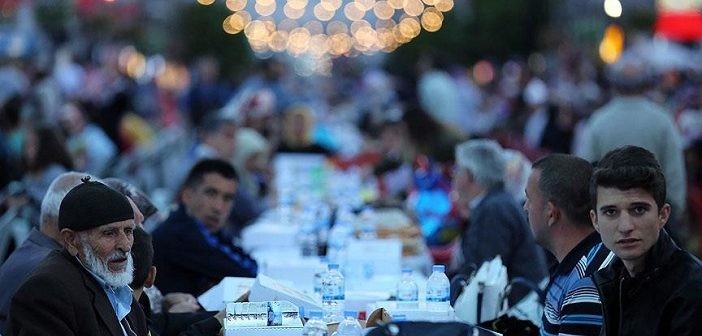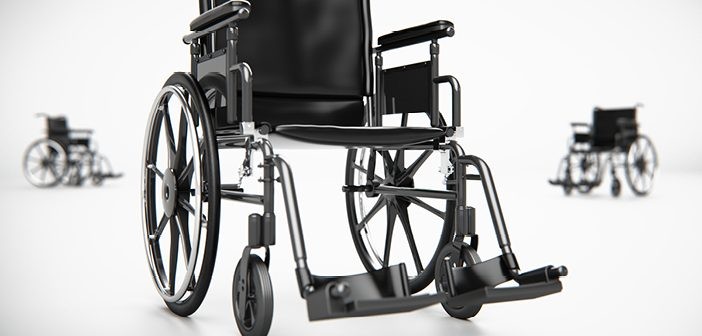
Manners of Offering Condolences and Participation to The Funeral
What are the manners of offering condolences? What is the important of participition to the funeral in islam?
“Muslims who suffer any calamity should think about the calamity that befell them after my death and find solace and be patient.” (Muwatta’, Janaiz, 41)
Offering condolences (ta’ziyah), which contains the meanings of comforting the person who is faced with a calamity and encouraging patience, generally refers to a visit made to express condolences and wishes to get well soon to the relatives of deceased. It is necessary to advise someone who has suffered a calamity to be patient, to be told that destiny is manifested in the disaster that has befallen, that it is no longer possible to reverse it, and that surrendering to destiny will bring one spiritual comfort. In addition, it is one of the most important manners of delivering condolences is to to remind that Allah Almighty gives rewards to the troubles that befall him, and to pray Allah for him/her with invocations such as “May Allah increase your reward”, “May He grant you patience”, “May He grant you gratitude”. Because of such characteristics, offering condolences has the effect of reducing pain.
Offering condolences can be delivered by visiting personally or, if this is not possible, by other means of communication such as telephone and letter.
It is necessary to support spiritually a person who has suffered a hardship or who has lost a loved one, by offering condolences verbally as it is necessary to help him/her actually when necessary. As a matter of fact, when the news of the martyrdom of Ja’far al-Tayyar -May Allah be well-pleased with him- came to our Prophet -upon him blessings and peace-, he said “Cook for Ja’far’s family! Because they cannot be busy with the preparing food in this situation!” (Abu Dawud, Janaiz, 25-26)
Offering condolences to a believer is one of the moral values of Islam. However, it is considered reproachable to offer condolences after three days in order not to renew the grief of the deceased. However, people far away who could not be present at the burial of the diseased can offer condolences after three days.
Examples from the Practice of the Prophet:
Zainab -May Allah be well-pleased with her- sent (a messenger) to the Prophet requesting him to come as her child was dying (or was gasping), but the Prophet returned the messenger and told him to convey his greeting to her and say:
“Whatever Allah takes is for Him and whatever He gives, is for Him, and everything with Him has a limited fixed term (in this world) and so she should be patient and hope for Allah’s reward.” (al-Bukhari, Janaiz, 33)
The Messenger of Allah -upon him blessings and peace- stated that condolence is an important human duty and said: “There is no believer who consoles for his brother for a calamity, but Allah will clothe him with garments of honor (grants honor) on the Day of Resurrection.” (Ibn Majah, Janaiz, 56)
The following letter, written by our Prophet to Muadh ibn Jabal -May Allah be well-pleased with him-, who was outside of Medina, on account of offering condolences the death of his son, is an example of such delicacy and condolence:
“Bismillahirrahmanirrahim.
From Muhammad, the Messenger of Allah, to Muadh ibn Jabal...
May the peace of Allah be upon you!
I would like to convey to you that I praise Allah, there is no god but He. Now; May Allah increase your reward and give you great rewards in return and give you the strength to be patient. May He bless us and you. For, our lives, our possessions, our good children, the sweet gifts of Allah, the Mighty and the Exalted, are among the things entrusted to us for a temporary period of time.
Allah made you happy by giving you that child. Now He has taken him from you for a great reward. If you expect mercy, forgiveness and guidance from Allah in return, be patient! Then you will regret it! Know that crying and whining cannot bring anything back, nor can it drive away sadness and grief. What is to come has already come, wa’s-salam.” (Hakim, III, 307)
Awf ibn Malik -May Allah be well-pleased with him- states the following in a narration stating that the Prophet -upon him blessings and peace- attended the funerals and prayed for them:
“Our Prophet led a funeral prayer. At the time, I heard the Messenger of Allah pray as follows and I memorized it:
“O Allah! forgive him, have mercy upon him, give him peace and absolve him. Receive him with honour and make his grave spacious; wash him with water, snow and hail. Cleanse him from faults as Thou wouldst cleanse a white garment from impurity. Requite him with an abode more excellent than his abode, with a family better than his family, and with a mate better than his mate. Admit him to the Garden, and protect him from the torment of the grave and the torment of the Fire.”
When I heard this beautiful prayer, I thought to myself, “I wish I were that dead body.” (Muslim, Janaiz, 85)
The Messenger of Allah -upon him blessings and peace- described the reward of performing the funeral prayer and sending the deceased to the grave as follows:
“(A believer) who accompanies the funeral procession of a Muslim out of sincere faith and hoping to attain Allah’s reward and remains with it till the funeral prayer is offered and the burial ceremonies are over, he will return with a reward of two Qirats. Each Qirat is like the size of the (Mount) Uhud. He who offers the funeral prayer only and returns before the burial, will return with the reward of one Qirat only.” (al-Bukhari, Iman 35)
Source; Islamic Etiquette, Faruk KANGER - Lokman HELVACI, Erkam Publications
Good Manners Towards Allah AlmightyGood Manners Towards Our Prophet












